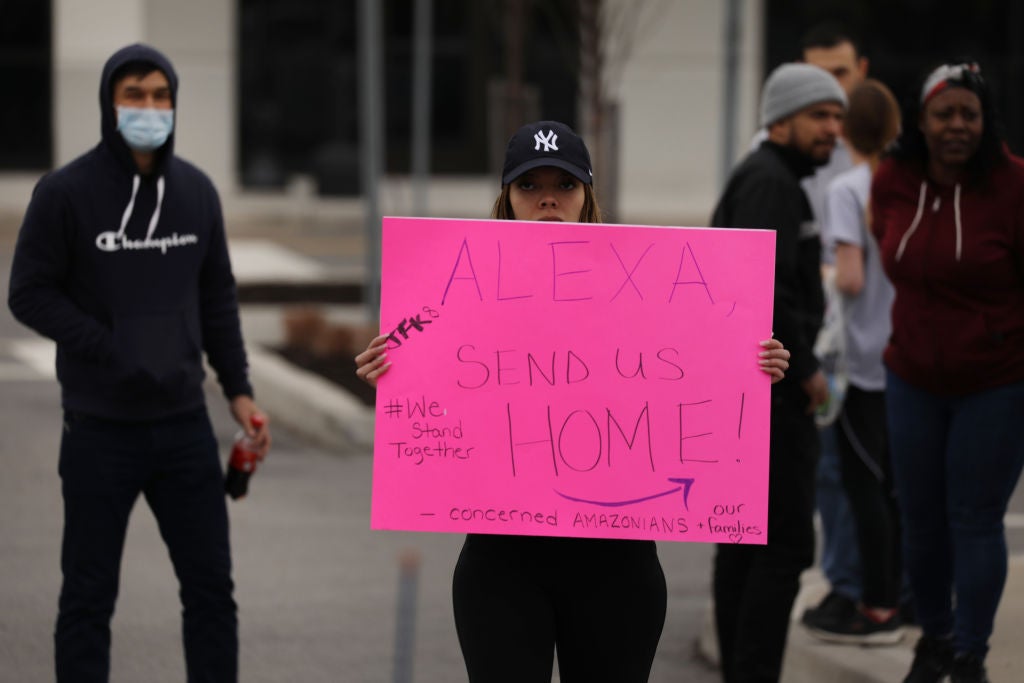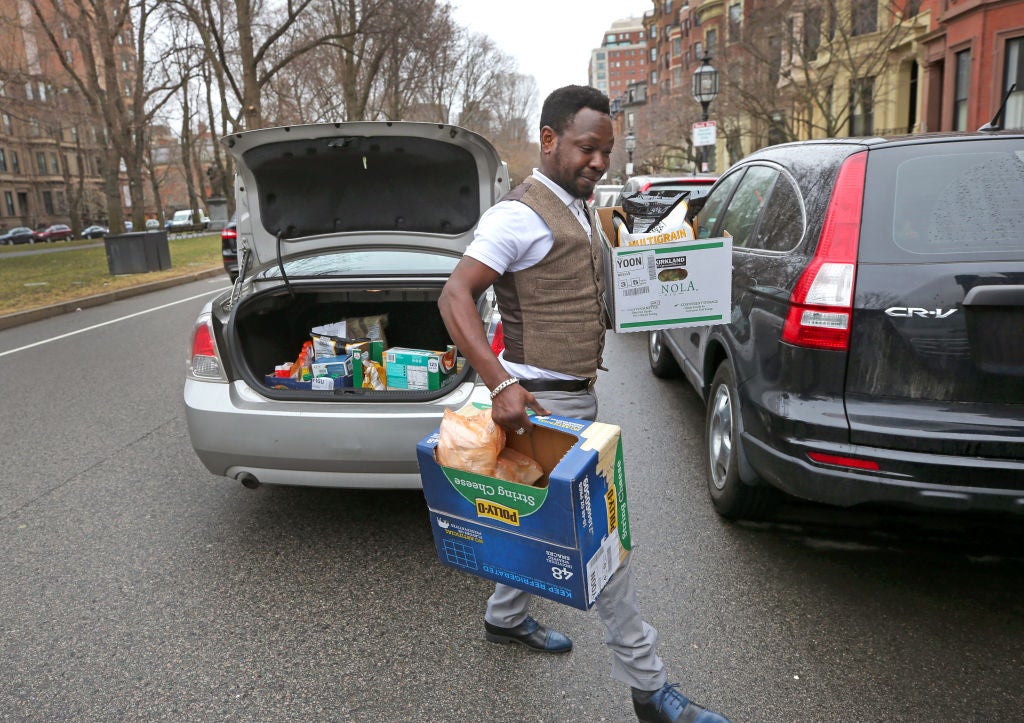
As the COVID-19 pandemic continues, Amazon and Instacart employees began striking Monday, citing safety concerns, long hours, unsanitary conditions, and the need for paid sick leave, with Instacart workers planning a mass “sick-out” on Tuesday.
Shelter-in-place orders are instituted across the country and demand for online grocery and delivery services continues to grow, putting workers at risk of infection. Amazon warehouses are closed spaces that often house thousands of employees, and are quickly becoming sites of infection, with at least ten of its warehouses testing positive for COVID-19, Business Insider reports.
Instacart, a San Francisco based grocery delivery company, announced its plan to hire 300,000 more workers, according to AP News. Unfortunately, while this doubles their workforce and creates more employment opportunities, it also increases risk of exposure. Instacart employees must make several grocery runs a day, often traveling to multiple grocery stores for just one customer.
The Center for Disease Control (CDC) encourages individuals to grocery shop as infrequently as possible, but Instacart employees do not have that option. Their pay comes from providing a customized grocery experience and their health is at risk every time they enter a grocery store.
Jay Carney, senior vice president of Amazon, assures the public that their “first and primary concern is that our 500,000 Amazon employees are as protected as they can be as they do this heroic work for their fellow citizens,” CNN business reports.
Amazon’s commitment to hiring more employees, increasing their wages, and warehouse safety standards has come into question. Though Carney claims the company is doing everything it can to support its workers, from encouraging them to take days off to promoting job stability, many employees don’t agree.

During an interview on Monday’s strikes, Heaven, a current Amazon employee said, “I walked out because @Amazon lied, they told me there was one case in the building and there is actually eleven, so I don’t feel safe.”
Another employee says, “There’s people sick in the building, and they don’t care about our health or safety. It’s affecting us the hardest here in Staten Island, NY.”
Carney’s not so subtle insistence that Amazon workers are heroes for risking exposure and ensuring America’s economy stays afloat is another capitalist scheme to divert from the reality that real people are dying. Amazon workers are lied to, sacrificed for profit, and gaslit when they bring their concerns to management.
Whole Food workers have called for a mass “sick-out” on Tuesday.
“As this situation has progressed, our fundamental needs as workers have become more urgent,” the Whole Foods workers’ petition reads. “COVID-19 poses a very real threat to the safety of our workforce and our customers. We cannot wait for politicians, institutions, or our own management to step in to protect us.”
Marc Perrone, president of The United Food and Commercial Workers (UFCW) International Union, issued a statement in support of the strikes.
“Amazon, Instacart and Whole Foods workers are sending a powerful message that it’s time to stop putting corporate profits ahead of the health and safety of the men and women who are critical to our food supply, and are on the frontlines of the coronavirus outbreak,” Perrone said.
Workers are not expendable and companies like Amazon, Instacart, and Whole Foods would do well to remember that. Communities are coming together in solidarity with workers pledging not to purchase items from either company. It’s all of us or none of us.
*****
ESSENCE is committed to bringing our audience the latest facts about COVID-19 (coronavirus). Our content team is closely monitoring the developing details surrounding the virus via official sources and health care experts, including the World Health Organization (WHO), the Centers for Disease Control and Prevention (CDC) and the Occupational Safety and Health Administration (OSHA). Please continue to refresh ESSENCE’s informational hub for updates on COVID-19, as well as for tips on taking care of yourselves, your families and your communities.